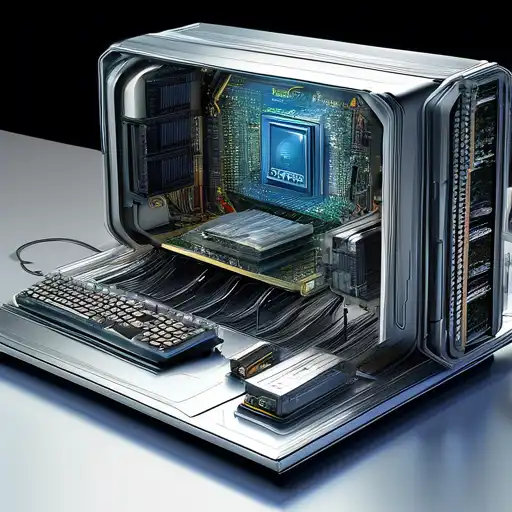The Evolution of Computer Hardware Design
As we delve deeper into the 21st century, the landscape of computer hardware design is undergoing a transformative shift. Innovations in materials science, quantum computing, and artificial intelligence are paving the way for a future where computers are not only more powerful but also more energy-efficient and compact.
Quantum Computing: A Leap Forward
One of the most exciting developments in computer hardware design is the advent of quantum computing. Unlike traditional computers that use bits to process information, quantum computers use quantum bits or qubits. This allows them to perform complex calculations at speeds unimaginable with current technology.
AI and Machine Learning Influence
Artificial intelligence (AI) and machine learning are also playing a pivotal role in shaping the future of computer hardware. Designers are now creating hardware specifically optimized for AI algorithms, enabling faster processing and more efficient data analysis.
Materials Science Breakthroughs
The search for new materials is at the heart of computer hardware innovation. Graphene, for instance, is a material that's thinner than a human hair but stronger than steel. Its application in computer hardware could lead to devices that are not only more durable but also significantly faster.
Energy Efficiency and Sustainability
As the world becomes more environmentally conscious, the demand for energy-efficient and sustainable computer hardware is on the rise. Designers are focusing on reducing the carbon footprint of devices by using renewable materials and improving energy consumption rates.
The Role of 3D Printing
3D printing technology is revolutionizing the way computer hardware is designed and manufactured. It allows for the creation of complex components that were previously impossible to produce, opening up new possibilities for customization and innovation.
Customization and Personalization
The future of computer hardware design is not just about performance but also about personalization. With advancements in 3D printing and modular design, users can look forward to hardware that can be customized to meet their specific needs and preferences.
Conclusion
The future of computer hardware design is bright, with innovations that promise to redefine what computers can do. From quantum computing to AI-optimized hardware and sustainable materials, the next generation of computer hardware will be more powerful, efficient, and personalized than ever before.
For more insights into the latest trends in technology, check out our articles on future tech and sustainable computing.
